Alex Steffen gave a talk on TED, which has 1,615,733 views today, about the route to a sustainable future by reducing humanity’s ecological footprint. Society contains unsustainable ecological footprint mainly caused by the impact of different regions on earth and high population density, this problem needs to be solved in order to shape an “unimaginable”, rather than an “unthinkable” world. Even though this video is not recent, it is still relevant and worth watching.
Eat Locally and Cook Outdoors
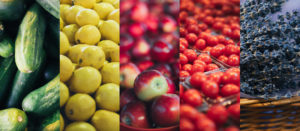
I have taken up the challenge of eating locally grown food. Eating locally, basically what is in season in your hometown, reduces CO2 emissions as it takes a great deal to transport the produce to you.
While in Guyana, I picked vegetables in our own backyard or purchased vegetables grown in the same country. Almost all of the food I ate was grown by local farmers. The meat I ate (chicken and lamb) came from our own farm. I also realized that I was practicing another sustainable challenge: cooking without electricity and propane gas. My family and I cooked outside on what we call a Fireside. Below is a picture of the makeshift stove we used to cook all our meals. We do have indoor stove but we did not use it as we prefer to cookout outside. I also did not use a microwave to warm up food for the 2 1/2 weeks I was in Guyana as breakfast, lunch and dinner was cooked each day.
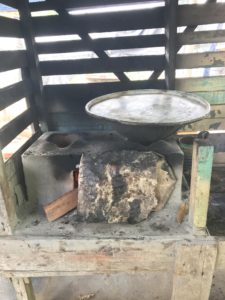
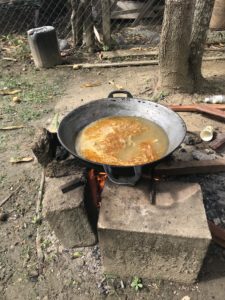
The Green Wash
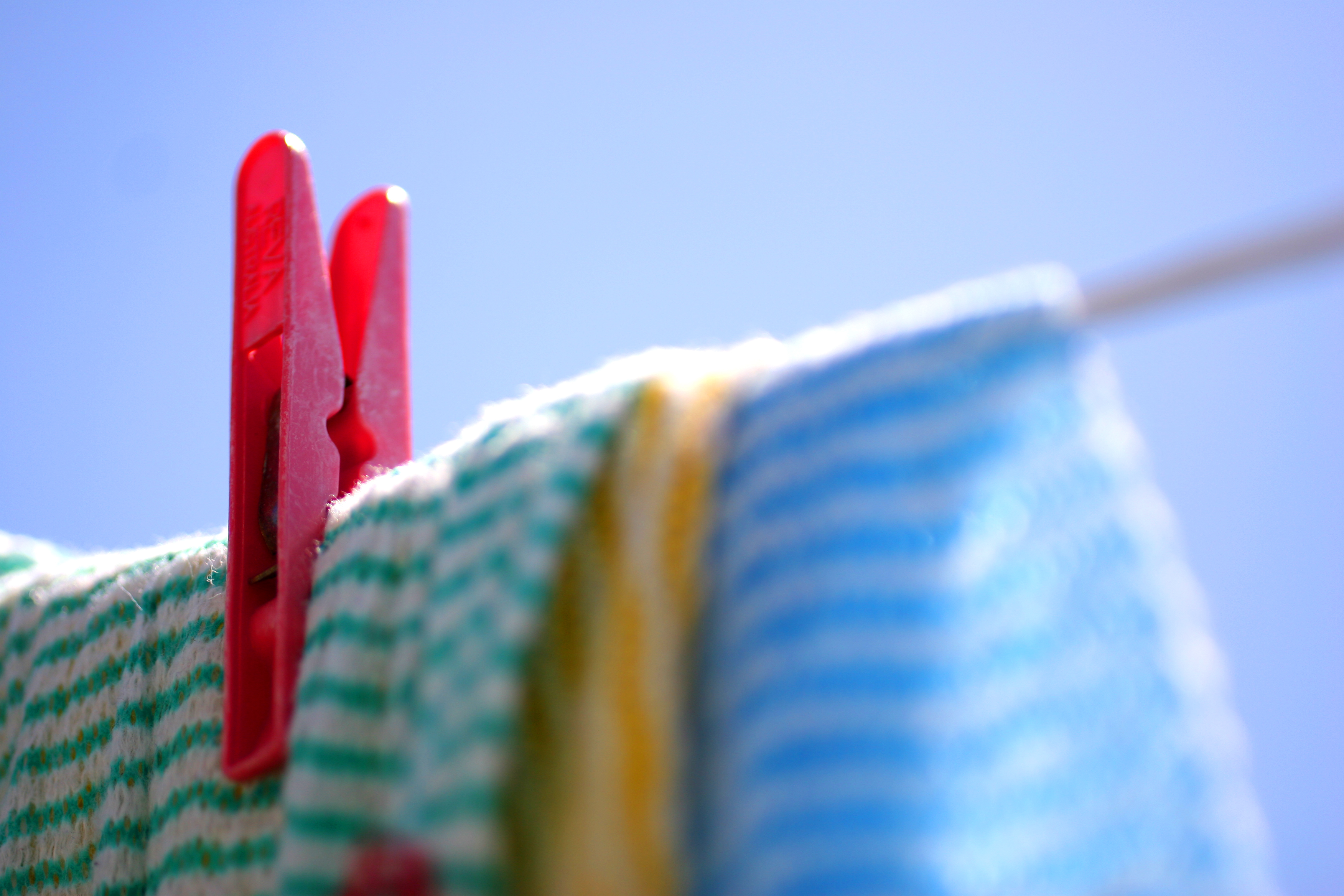
The second challenge I have chosen is to wash my clothes for 7 days at night after 7pm and on the cold cycle. I would also need to use environmentally friendly, chemical-free laundry detergent, which is kinder to our planet. Instead of using the dryer, I would need to hang my clothes outside on a clothesline to dry them in the sunshine.
Since I had to also complete this challenge in Guyana, I did not have to wash in the night. There is no washing machine at my home so I must hand wash my clothes instead. This was done during the day.I chose to use rain water caught by a large tank. This water is cleaner than the water that flows through the public pipe. There is also no drying machine. As this is a tropical country, a drying machine is not needed in our home. I have been hanging my clothes to dry on the clothesline in the sun everyday.
Reusable Bags
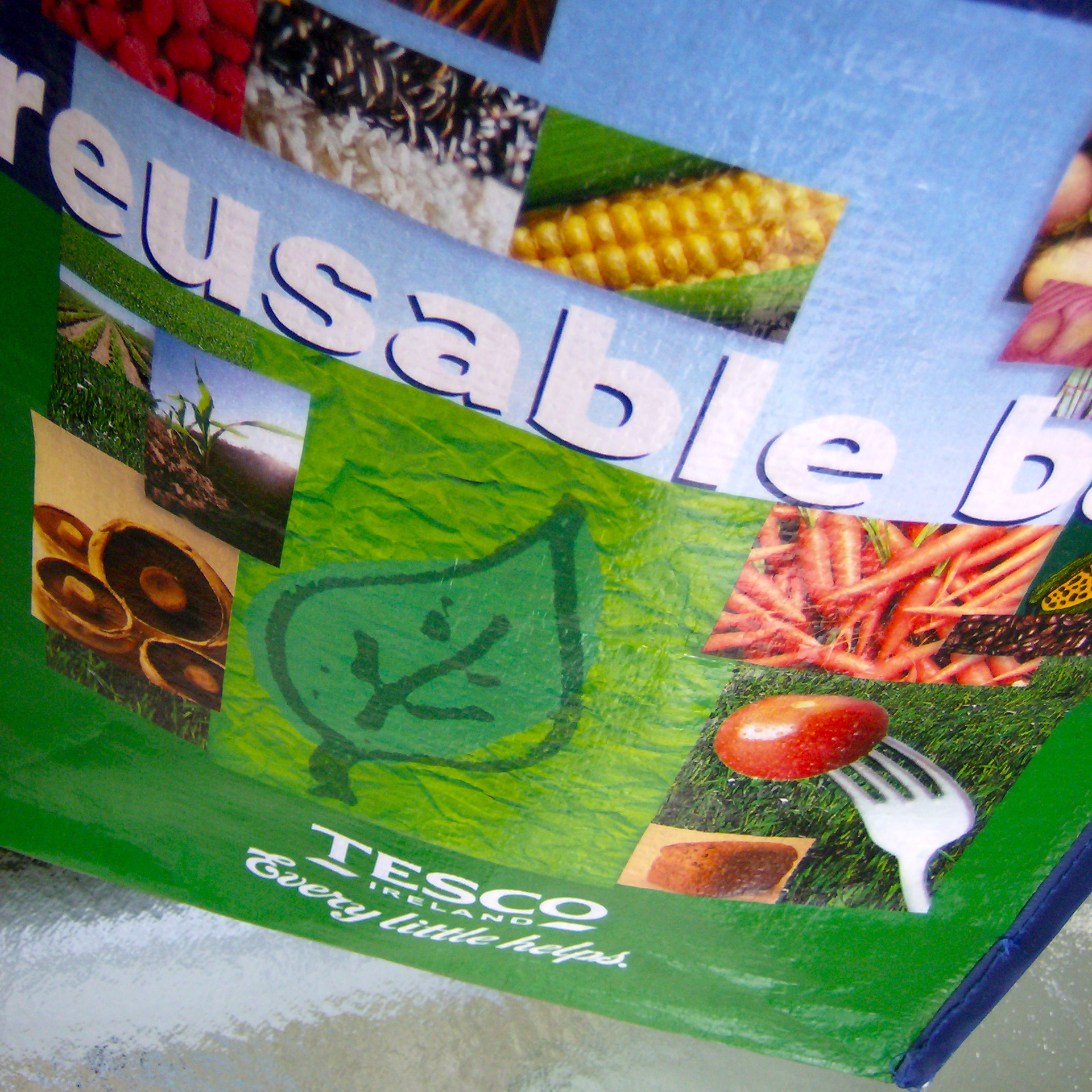
The first challenge I have chosen for my self is to use reusable bags for 7 days whenever I can such as doing grocery or any kind of shopping. This challenge is relevant to me as I have noticed the number of bags of plastic bags in my home keeps growing due to the amount of grocery shopping I do. According to the Environmental Protection Agency, roughly 2% of plastic bags are recycled in the United States. The rest are left to live on indefinitely in landfills or decompose in our oceans, where they leech toxins into the water and soil.
I had to complete my challenge in Guyana, a very small country of less than a million people located in South America. While there is no proper garbage/recycling system, the use of plastic bag is less. When going to the nearby shop, you either have to walk with your own bag or you will need to carry the items you bought with your hands. Almost everyday I went to the shop and I walked with a reusable bag. Even though it was by force, it felt good to not use a plastic bag. When I return to the states, my permanent home, I will surely continue to practice this sustainable habit.

